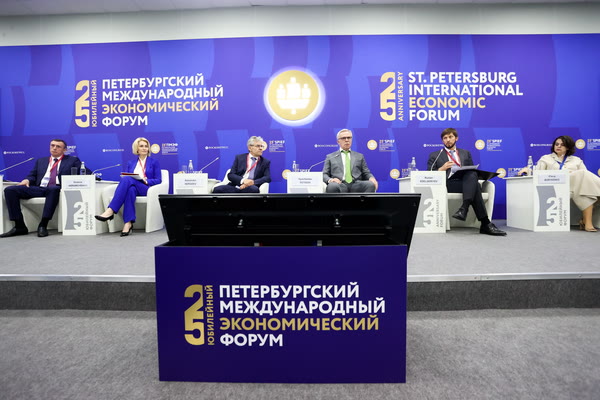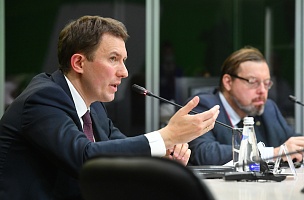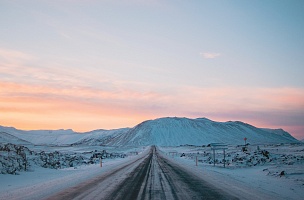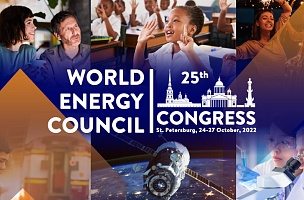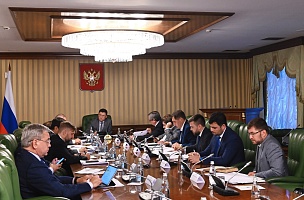Key conclusions
Russia has developed a broad regulatory framework in environmental safety
“We started from absolute zero in terms of [legal] regulation. Today, one way or another, we have developed a regulatory framework,” Ruslan Edelgeriyev, Advisor to the President of the Russian Federation; Special Presidential Representative on Climate Issues.
“Legal regulation is an important area. Let me remind you that we started from the zero line, we had nothing? there was no such regulation in the country at all. We ratified the Paris Agreement in 2019, and acceded to it, but there has never been such a legal regulation. And it was developed for the first time in the Russian Federation. <…> We developed all by-laws as part of the Federal Law No. 296-FZ of 2 July 2021 on limiting emissions [Federal Law No. 296-FZ of 2 July 2021 “On Limiting Greenhouse Gas Emissions”. – Ed.], that is, we described what climate projects were, how to implement them, how to verify them, how to take them into account, we described what bodies should deal with these issues,” Victoria Abramchenko, Deputy Prime Minister of the Russian Federation.
Russia is a responsible state in solving climate and environmental problems and plans to fulfill all its obligations
“Today, I would like to declare – both for the international community and for people in our country who are hysterically inclined to understand – that the Russian Federation… is a climate-responsible state… we are not going back anywhere, we are keeping our commitments,” Ruslan Edelgeriyev, Advisor to the President of the Russian Federation; Special Presidential Representative on Climate Issues.
“The Russian Federation remains a climate-responsible state, it is implementing all the obligations it has assumed,” Victoria Abramchenko, Deputy Prime Minister of the Russian Federation.
“Last year, the President [Vladimir Putin. — Ed.] depoliticized everything related to this issue, speaking in Kunming at a conference on biodiversity, before the Russian delegation went to Glasgow. He said that we need it, our children, our grandchildren need it, and therefore we will do everything in order to correct the situation with the accumulated damage, introduce environmental conservation technologies,” Vyacheslav Fetisov, Deputy of the State Duma of the Federal Assembly of the Russian Federation; Goodwill Ambassador, The United Nations Environment Programme (UNEP); Chairman, All-Russian Society of Nature Conservation.
PROBLEMS
Some Western countries are trying to influence the decisions of the Russian Federation in environmental safety, and also hinder the modernization of Russian production
“Today's political situation has shown that those countries that called us to this or that action... provoked an increase in civil aviation emissions themselves, because they increased flight routes, they abandoned clean energy, switched to coal, which provoked greenhouse gas emissions again,” Ruslan Edelgeriyev, Advisor to the President of the Russian Federation; Special Presidential Representative on Climate Issues.
“Our partners prohibit us from supplying us with equipment that is necessary for the environmental or climate modernization of our production facilities. The question is why? Should the Russian Federation unilaterally be a climate-active state? Obviously, the answer is no,” Victoria Abramchenko, Deputy Prime Minister of the Russian Federation.
“Somewhere our “friends” were having a go at us when signing the Kyoto Protocol and the Paris Agreement without considering all our advantages,” Vyacheslav Fetisov, Deputy of the State Duma of the Federal Assembly of the Russian Federation; Goodwill Ambassador, The United Nations Environment Programme (UNEP); Chairman, All-Russian Society of Nature Conservation.
SOLUTIONS
“We are not making quick energy transitions because there are sustainable development goals for affordable, clean energy. We will act strictly on the topics we have previously stated…we will act in such a way that no one can grab the biggest piece of the pie, and accuse us of certain unfulfilled obligations. We will not any changes in a hasty manner... we must still understand today who our friends are and who our enemies are. And we will continue to move towards sustainable development, without plunging the economy into a state of shock, without social upheavals. Because we see such short-sighted actions of our Western colleagues. They are after all introduce their population into very uncomfortable living conditions. <…> We know what we are doing. And in no case will we allow us to be blackmailed with all sorts of carbon-correcting mechanisms, the rejection of coal, the transition to certain energy sources that are inconvenient for us,” Ruslan Edelgeriyev, Advisor to the President of the Russian Federation; Special Presidential Representative on Climate Issues.
“It is necessary to raise this issue today for all states that support the trend of reduction of greenhouse gas emissions. Access to technology, equipment… should be shared and should not be subject to any sanctions or restrictions,” Victoria Abramchenko, Deputy Prime Minister of the Russian Federation.
“Controlling the quality of air and water, creating an industry for cleaning all our water resources, which will soon be the main resource in geopolitics – these are also tasks that today require solutions from government, business and science especially. Forest conservation is also a very important topic,” Vyacheslav Fetisov, Deputy of the State Duma of the Federal Assembly of the Russian Federation; Goodwill Ambassador, The United Nations Environment Programme (UNEP); Chairman, All-Russian Society of Nature Conservation.
For more information, visit the Roscongress Foundation’s Information and Analytical System at roscongress.org/en


